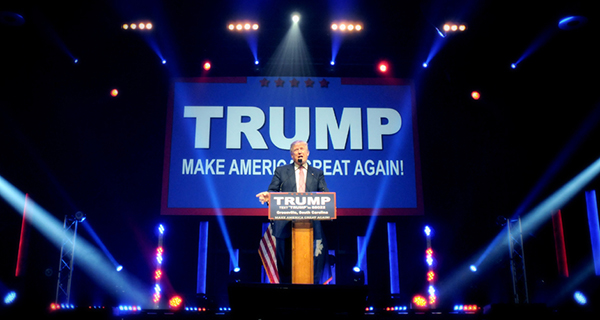
by Antonella Ciancio
Producers of fine Italian cheese, wine, coffee, pasta and olive oil expect to continue to grow in the US market despite the promised protectionist policies by president-elect Donald Trump, as long as their quality products remains competitive in terms of prices and consumer appeal. The election of Republican candidate Donald Trump to the White House may have surprised pollsters and people all around the world who bet on Democrat candidate Hillary Clinton, but is not currently seen as a threat by Italian producers with an established market presence in the world’s largest economy.
QUALITY HAS NO PARTY – “I’m not concerned about our business and US imports from Italy because of ‘protectionist’ policies,” said Marco de Ceglie, the US chief executive of Italian olive oil maker Salov, best known for its brand Filippo Berio. Although it’s too early to assess the likely impact of Trump’s future policies on food exports to the US, there is confidence that the announced anti-trade agenda of the real estate billionaire will primarily target manufacturing giants such as China, seen as an aggressive and unfair competitor, rather than a key EU trade partner like Italy. “We hope that the American consumer will continue to appreciate the excellent quality of Italian food products, as well as automotive, fashion, and so on,” said Alfredo D’Innocenzo, director of business development in North America at Italy’s leading coffee maker Luigi Lavazza.
CHALLENGING COMPETITION – Trump, who has campaigned to put “America first” in global interests, has promised to pull the plug on the controversial trade deal signed by the Obama administration with Asian countries (excluding China), known as TPP. Many in Europe expect the ambitious transatlantic trade negotiations between the EU and the US (TTIP) to face the same destiny. “Trump intercepted the deep resentment of US workers who have lost their jobs to the advantage of countries which have exploited unfair trade advantages (currency manipulation, dumping, workforce exploitation, taxation, a more favorable regulation, etc),” de Ceglie told Italianfood.net. “Italy is not part of these categories,” the manager said. “We export quality products from a country that does whatever it takes to hurt manufacturing, through taxation, regulation and endless bureaucracy,” he added.
HOW TO FACE DOMESTIC MANUFACTURING – Trump’s promise to bring jobs back in America and support domestic manufacturing could however make it more challenging for foreign companies to compete with local producers. In such a scenario, Italian food manufacturers would be under pressure to contain prices while preserving quality and innovation, potentially hurting their margins. “Of course, if the Trump administration significantly boosts the competitiveness of the US system (by reducing taxes, cutting the red tape and promoting a strong energy and infrastructure policy) the problem could intensify. But this is not protectionism,” de Ceglie said. “The Italian agrofood sector will continue to do well in the US market if it keeps offering quality products at competitive prices,” he continued. In an optimistic scenario, a wealthier American middle-class may even spend more on prime Italian food. “I am an optimist by nature and I still see many opportunities in North America. The focus on quality is always rewarding in the long term,” Lavazza’s D’Innocenzo said.
